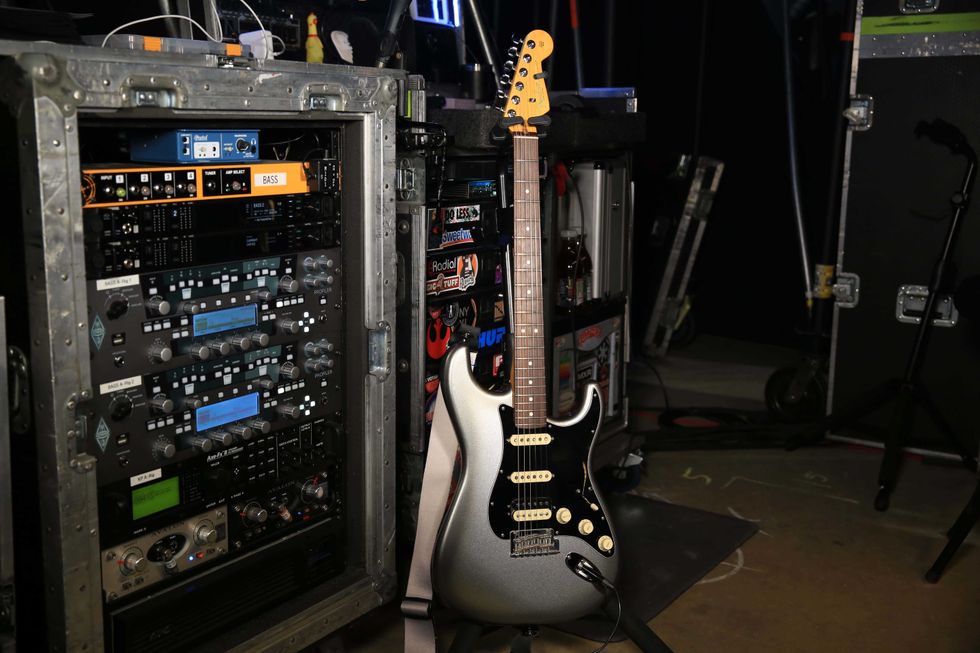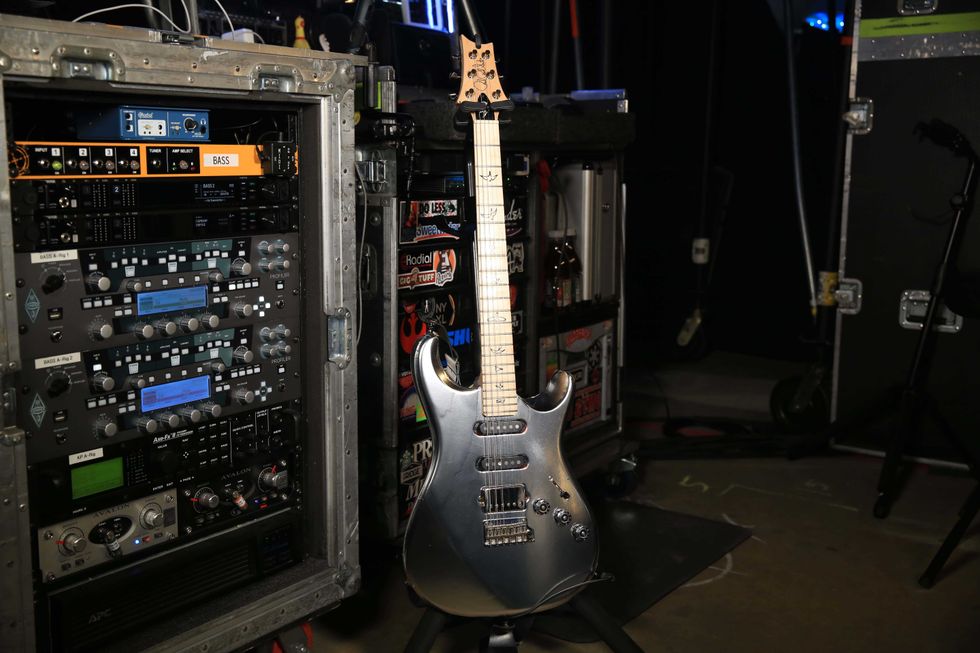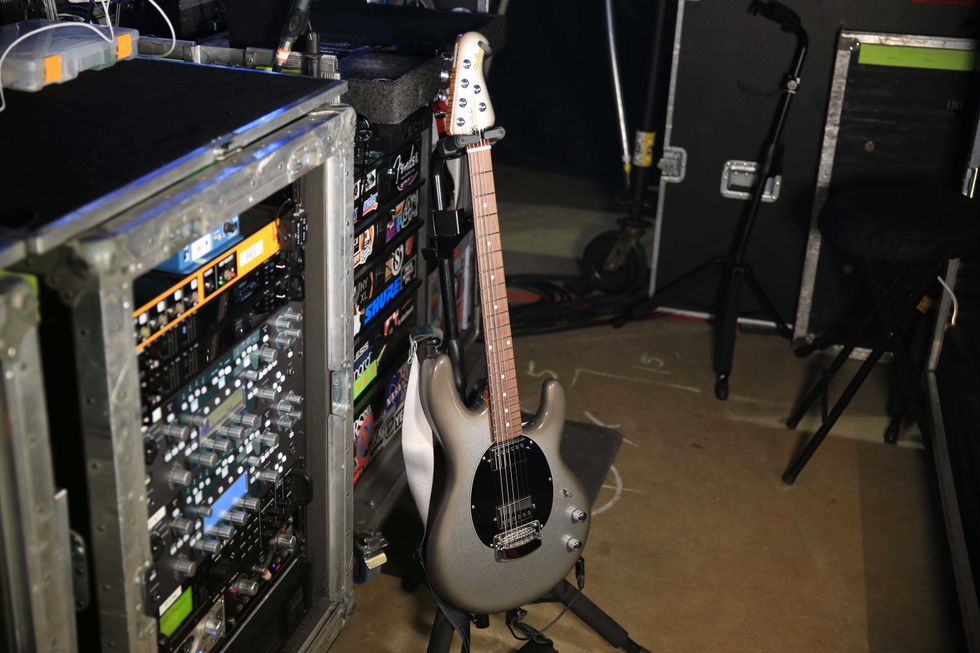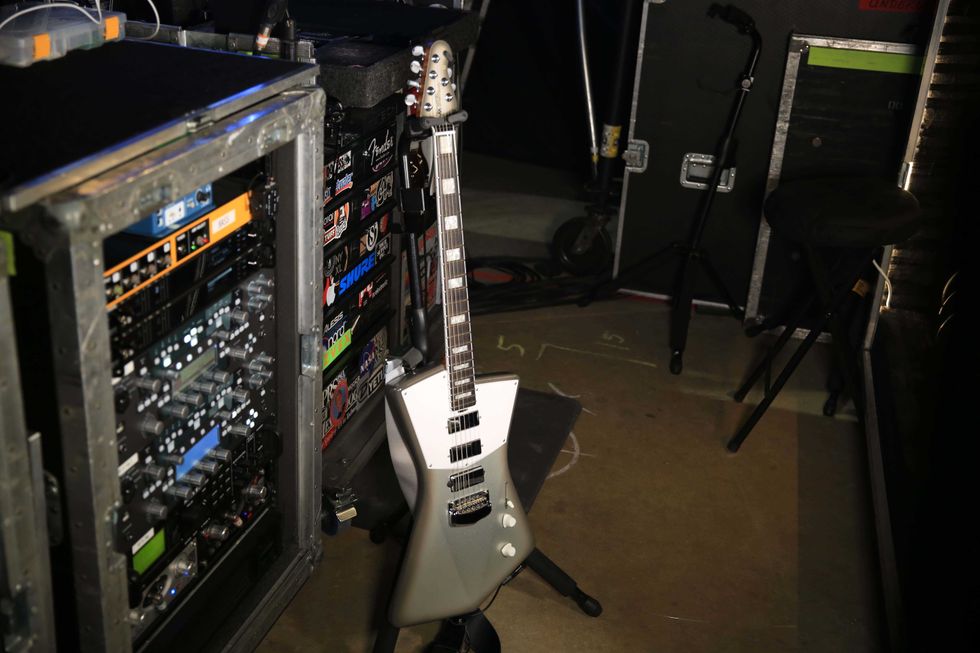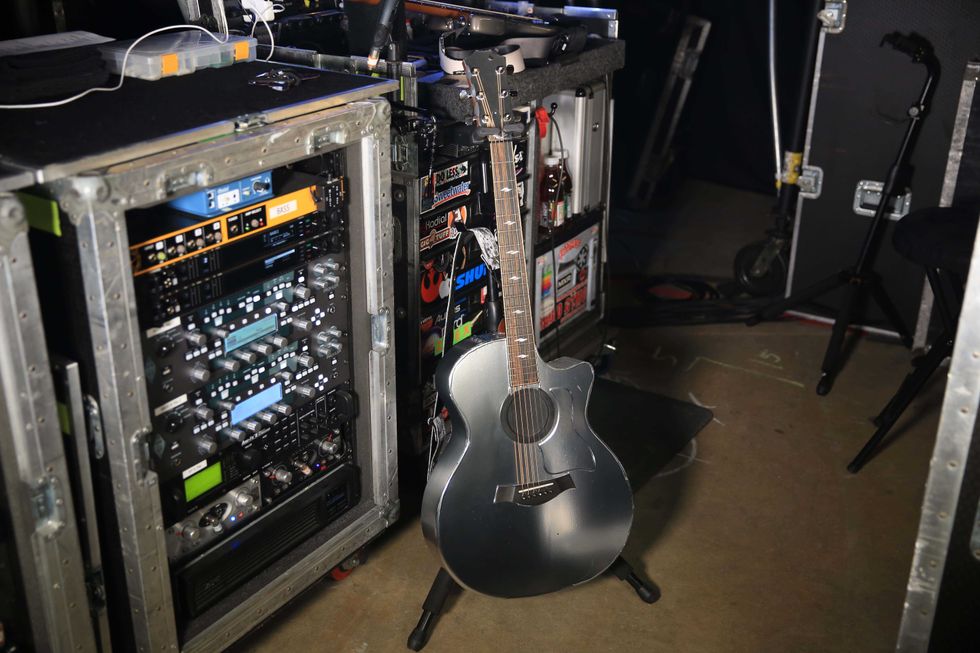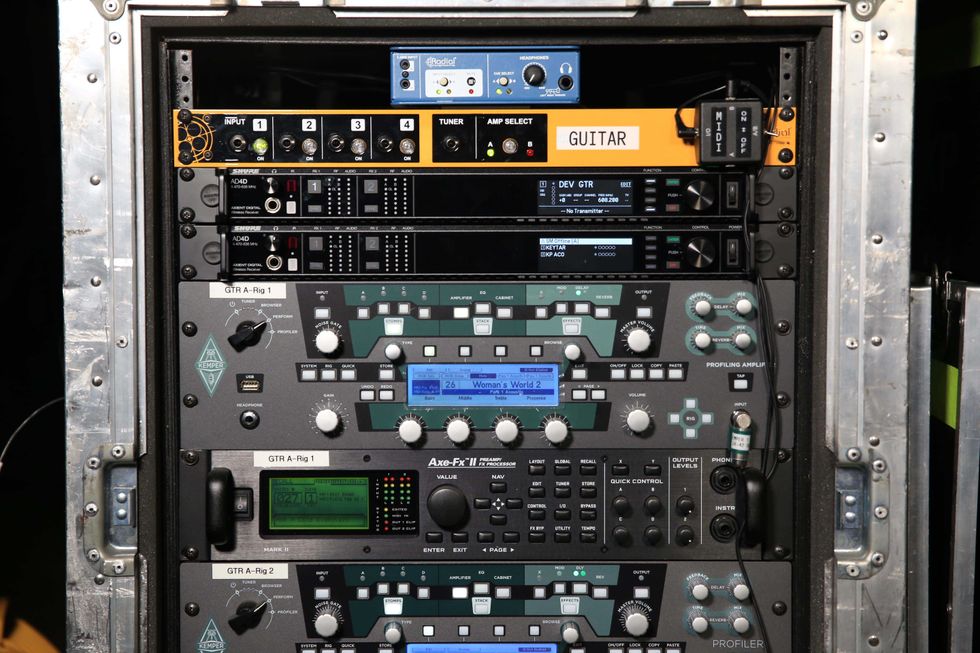At this point in his 30-year career, there’s not much about Steve Vai that hasn’t been covered before. Luckily, some of our more astute Facebook fans kept Vai busy for nearly two hours to talk about everything from the influence of his former boss Frank Zappa to some setlist spoilers for his upcoming Rock in Rio gig. Check out a few highlights from Vai’s expansive Q&A below.
1. Vai is digging into his archives for his next project.
Right now I’m working on the record that will be included in the 25th anniversary edition of Passion and Warfare that will come out next year. It’s music I’ve written or tracked between Flex-able and Passion and Warfare, kinda like the missing link. It’s pretty bizarre and wild. As a matter of fact, I just played Andy Alt one of the weirdest solos I think I ever did and he said, “That was the most inside-out, backwards, and flipped thing that ends up being so right!”
2. When it comes to Vai’s immaculate technique, 11 is the magic number.
Practice very, very slow and perfect. If every note doesn’t sound like it has its own personality, roundness, depth, and other perfections, then start slower. Then slowly bring the speed up and master perfectly, effortlessly, and beautifully what you’re playing at least 11 times in a row without making one mistake. Then get a little faster. Patience is of vital importance, but of even more importance is that you enjoy every note and put your full attention into the soul of every note.
3. His 10-hour workouts are a thing of the past.
If I still did those I would be as good as some people think I am.
4. Improvisation and composition are neighbors in Vai’s solos.
Sometimes when I’m in the studio working on a solo, I break it down and work on one section at a time until something comes out that doesn’t sound like anything I’ve heard or played before. I usually can’t do that on the fly, so I’ll need to meditate on an idea. I then work on that idea until it’s vocabulary becomes second nature to me. So certain solos may be duplicated live very close to the original but there’s always space for pure improv. I enjoy doing both equally.
5. Tone is a supremely unique journey.
The ultimate goal is to find whatever it is that makes you—and I mean you personally, nobody else, including society, your friends, your parents, or anything that anyone might say to you—feel good. You are unique, so the things you desire are unique. What is it that you desire that brings you the feeling of fulfillment and enjoyment? So both of your options, or one of them, or neither of them, can be the right answer for you, but you’re the only one who can choose what feels best for you. And there are no wrong answers.
6. Learning a new tune is largely a mental exercise.
I listen to the song and imagine in my mind the picture of me playing it beautifully, elegantly, effortlessly. I also visualize how it would sound in its most perfect musical condition coming off my fingers. Once this picture is clear there’s nothing that can stop it from manifesting, with the exception of something else that’s more interesting to me at that time.
7. Replacing Yngwie and Eddie Van Halen? No problem.
Both gigs had challenges, but no pressure. My goal was to do my best to deliver my unique, quirky brand of playing within the framework of what was expected for the band.
8. When it comes to nerves and stage fright, Vai focuses on the present.
Before you go onstage, take a moment to put your attention into your body, and relax and breathe. The only reason you’re making mistakes and are nervous is because you’re afraid of making mistakes and your mind is focused on a phantom, fearful future that doesn’t exist until it becomes your “now”—and that’s when the mistakes happen. The best way to deal with this is to tell yourself that you’re going to give yourself a break from worrying about anything and bring your attention to every little thing you’re doing in that precise moment.
So when you’re strapping on your guitar, your attention is on putting your guitar on. And when you walk out onto the stage, you’re focused on each footstep along the way. And when you go to play, your attention is on every note. You shouldn’t have to be thinking of what to play but instead, just let it come out and give it your attention. If a mistake happens, so what ... it happened. The best way to destroy the rest of your show is to let that mistake infiltrate and take possession of the clarity of your attention. Nobody cares. There’s no measure of a person in that way. You’re just there to bring entertainment to people.
Go easy on yourself and practice bringing your attention into all the little things you do that are simple in life. That’s when true quality will flow into them. Then when it comes time to go onto a stage, or any other critical moments in life, you’ll be more prepared, centered, and grounded in the present moment where there really aren’t any problems.
9. Whammy-bar antics are a little less destructive with Vai’s latest guitars.
Since Ibanez came out with these new titanium bars, I usually am only victorious at breaking one every two years or so. Thomas Nordegg [Vai’s guitar tech] is very happy about it. But still I try.
10. Thanks to a pop diva, Vai’s beekeeping hobby is back on track.
Unfortunately, I lost my last hive to colony collapse some months ago but will be receiving a new hive that is actually coming from Bette Midler’s house. And when they all buzz in harmony they create a melody that sounds like “Wind Beneath My Wings.”






![Rig Rundown: AFI [2025]](https://www.premierguitar.com/media-library/youtube.jpg?id=62064741&width=1245&height=700&quality=70&coordinates=0%2C0%2C0%2C0)












 Shop Scott's Rig
Shop Scott's Rig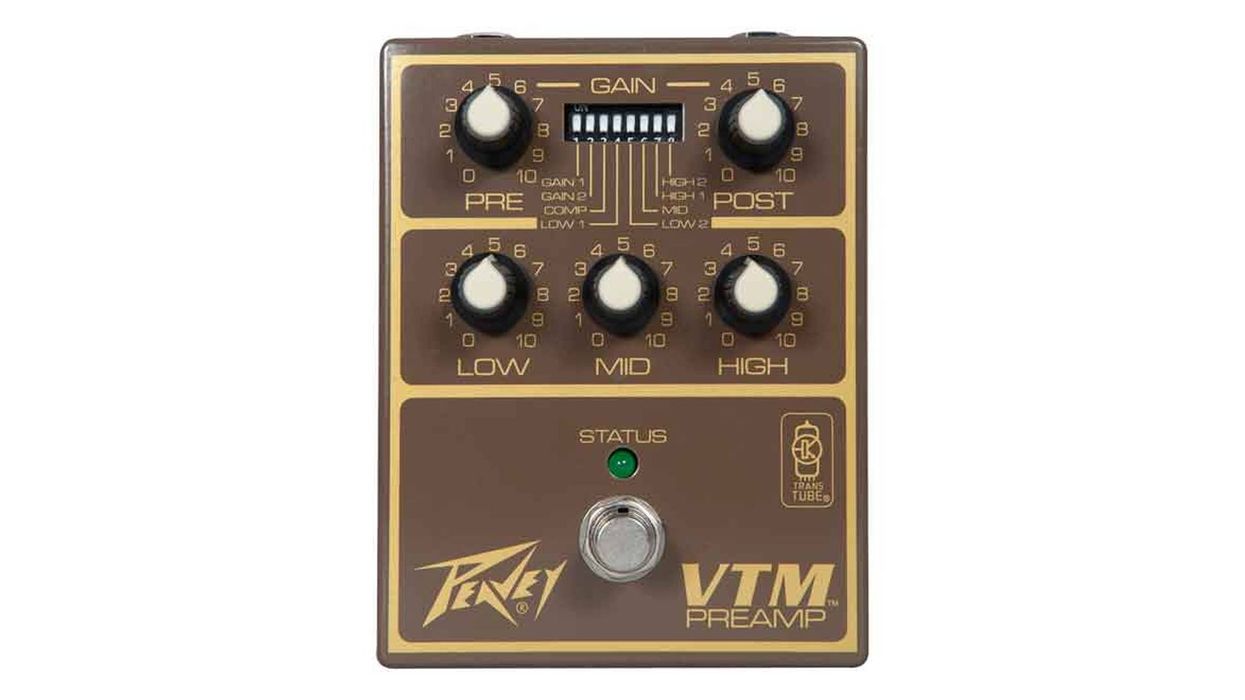













 Zach loves his Sovtek Mig 60 head, which he plays through a cab he built himself at a pipe-organ shop in Denver. Every glue joint is lined with thin leather for maximum air tightness, and it’s stocked with Celestion G12M Greenback speakers.
Zach loves his Sovtek Mig 60 head, which he plays through a cab he built himself at a pipe-organ shop in Denver. Every glue joint is lined with thin leather for maximum air tightness, and it’s stocked with Celestion G12M Greenback speakers.












![Devon Eisenbarger [Katy Perry] Rig Rundown](https://www.premierguitar.com/media-library/youtube.jpg?id=61774583&width=1245&height=700&quality=70&coordinates=0%2C0%2C0%2C0)
